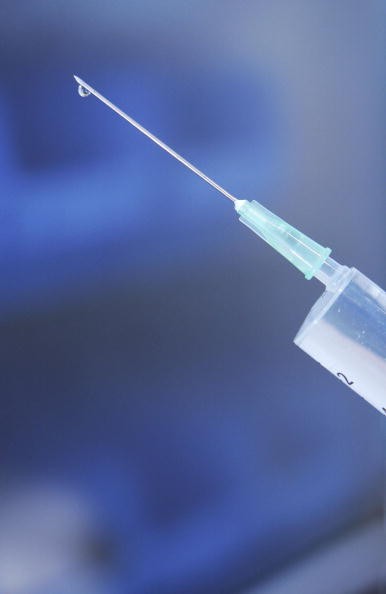
A vaccine in the works may offer a viable option to fight against high cholesterol.
In a joint research by the National Institutes of Health and University of New Mexico, a vaccine that targets a protein that regulates cholesterol can work effectively in lowering cholesterol levels even with the absence of statins.
Cholesterol is a waxy-like substance that is needed by the body to synthesize bile acids and promote fat absorption. However, when there's too much cholesterol, it becomes a major health problem. According to Centers for Disease Control and Prevention (CDC), more than 72 million US adults have high LDL (low-density lipoprotein) cholesterol, which is sometimes referred to as bad cholesterol. Further, people with high total cholesterol increase the risk of cardiovascular disease two times than the general population. Cardiovascular disease is one of the leading causes of global death.
So far, statins remain the most effective way to treat and reduce high cholesterol. However, they can also cause adverse side effects including muscle pain, digestive problems, increased blood sugar (which can also boost the risk of diabetes), and sometimes liver damage. Further, although it's the widely prescribed drug against high cholesterol, at least 10% of patients with high cholesterol can't take it.
This new vaccine provides an alternative by lowering cholesterol without these side effects. For the study, the researchers have tested the vaccine on mice then later combined it with statins, which they then gave to macaques. In both instances, a single dose of the vaccine reduced cholesterol levels dramatically.
The vaccine works by inhibiting the PCSK9 protein, which encourages bad cholesterol buildup by breaking down the binding receptors. In the process, excess cholesterol isn't flushed out from the body.
The vaccine isn't the first cholesterol intervention to work against the protein. Drugs such as Alirocumab have already been approved by the Food and Drug Administration. The biggest issue, though, is the price, which can cost a patient more than $8,000 a year. If the vaccine turns out successful, it may be available for "a fraction of a cost."
The team is now looking for commercial partners to expand their research and take the vaccine to market. Meanwhile, the latest study is published in Vaccine.



